The festival is held to thank the god for abundant crop and happy life in the past year and pray for peace and health in the new year.
Long Tong Festival is annually held on the 14th and 15th day of the first lunar month.
During the event, tourists to Bang Van listen to the story related to the origin of the festival. It is said that a long time ago, the country was in turmoil, so the king sent a general to this land to drive away the enemy. Thanks to the assistance of his talented wife, wherever the general went, the enemy troops were defeated. One day when the general was chasing the enemy’s troops, he was ambushed by them at Phja Den Mountain. His wife tried to hold back the enemy at Phja Cong Mountain. The general then blindfolded his horse and jumped off Phja Den Mountain. Having heard of the news about her husband’s death, the woman committed suicide at Phja Cong Mountain. Sympathizing with the fate of the general and his wife, local people set up a temple on Phja Den Mountain to dedicate to them.
Since the wife died on Phja Cong Mountain, every time local people prayed, they had to carry water from Phja Cong Mountain to the shrine on Phja Den Mountain for rituals in order to make their prayers effective.
Later, local people held a ceremony to ask the general to build a temple in a more convenient place for them to easily take care of it. After the ceremony, it rained heavily. The next morning, the old temple’s parts were moved to other locations. The first part was moved to the foot of a mountain in Coc Lai hamlet, Bang Van commune. The second part was in Ban Sanh, Thuong An commune, while the last one was in Ban Duoi (Duoi village), Duc Van commune. Local people built three temples in the localities to worship the general and his wife. Annually on festivals, the Chu family, who are in charge of taking care of the temple in Coc Lai hamlet, prepare offerings to ask the god to hold rituals.
This year’s festival featured various activities, including local agricultural product introduction, folk games, and volleyball competition. Tourists also had an opportunity to contemplate beautiful mountainous scenery with peach and plum blossoms and peaceful villages where the Tay, Nung, Dao, H’mong, Kinh, and Hoa people harmoniously live together.
Le Thi Tho, a tourist from Thach An district of Cao Bang province, said that since Thach An neighbors Bang Van commune, annually on the day, local people flock to Bang Van to participate in the festival. This year, despite the rainy weather, many people joined and brought their agricultural products to the event.
After 3 years of being affected by the COVID-19 pandemic, people of Bang Van commune in particular and tourists across the country in general came to the festival, contributing to preserving and promoting traditional cultural values. The festival was also an opportunity for local people to meet and have fun, thus building a sustainable residential community and strengthening the great national unity.
Below are photos of the festival.
    |
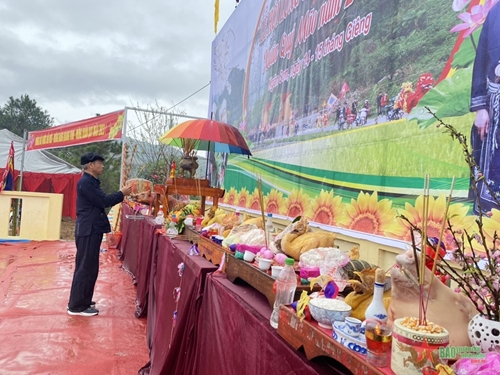 |
|
A representative of the Chu family offering incense to pray for favorable weather conditions, good health, safety and soundness |
    |
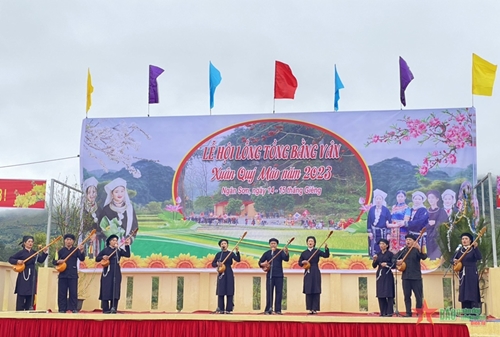 |
|
A special artistic performance at the event |
    |
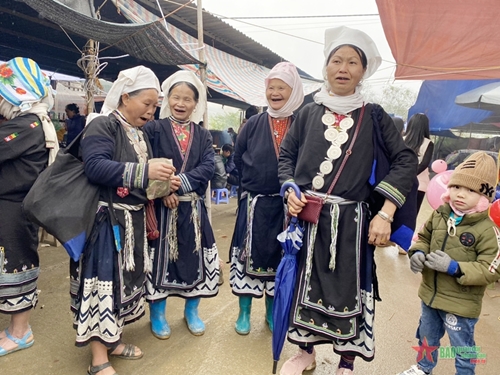 |
|
Local women in traditional costume at the festival |
    |
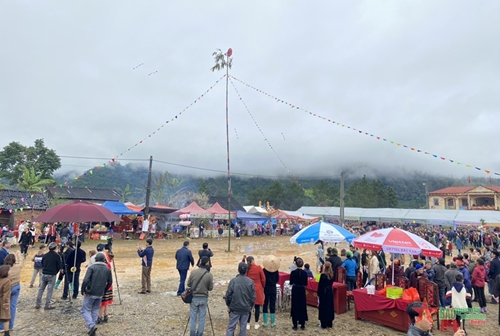 |
|
Local people participating in folk games |
    |
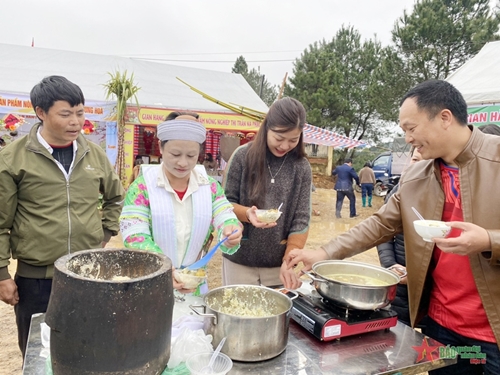 |
|
Men men (steamed minced corn), a special dish of the H’mong ethnic group in Ngan Son |
    |
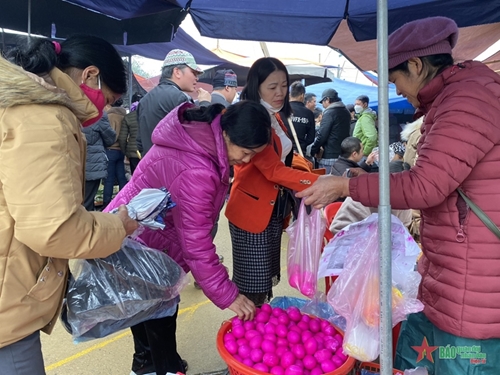 |
|
Buying red eggs on the first day of the New Year is a long-standing tradition to pray for luck. |
    |
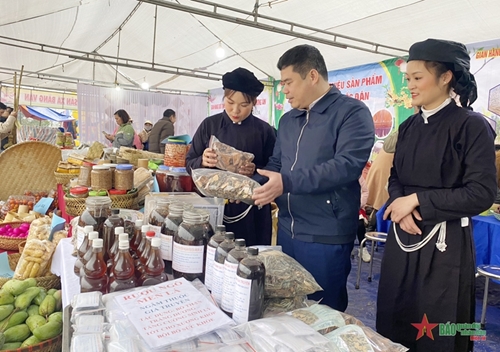 |
|
Tourists visiting and buying local agricultural products at the event |
Translated by Tran Hoai